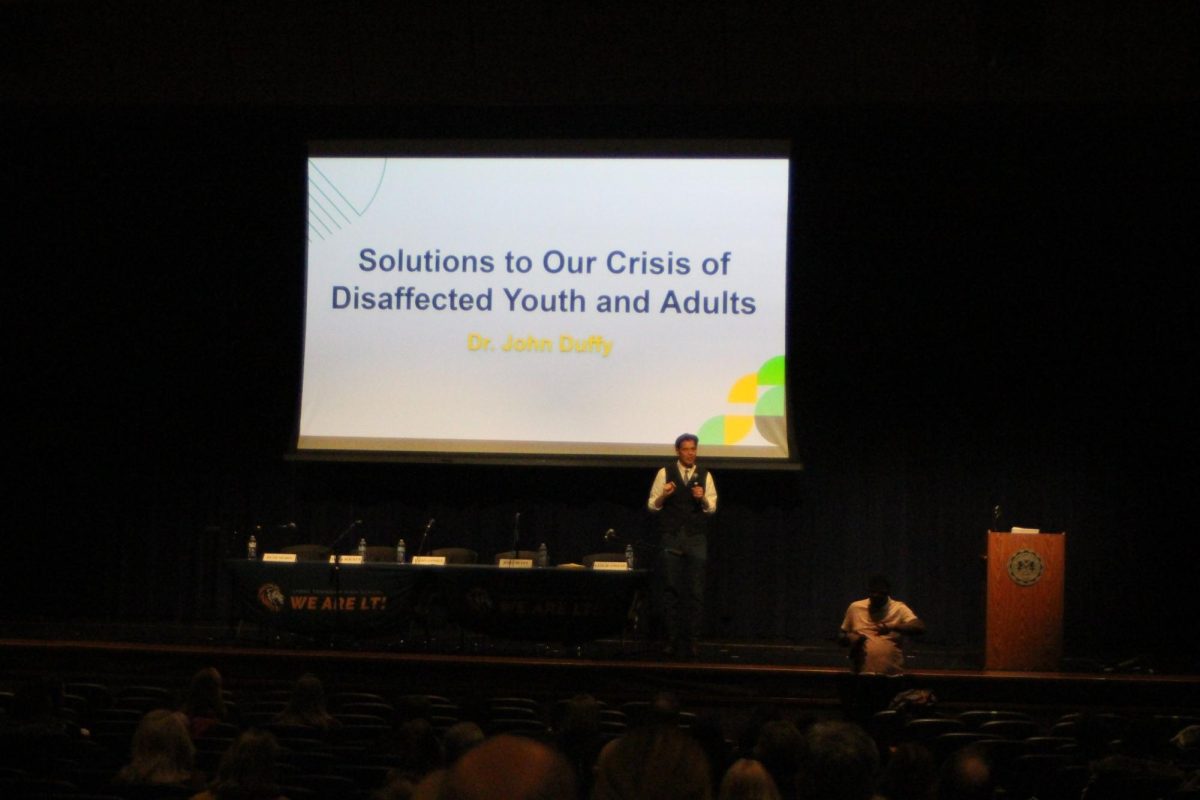LT has been hosting the Mental Health and Wellness Presentation for the past three years and every year it reaches more people. On Jan. 22, the school hosted multiple speakers and nonprofit organizations in the NC Reber Center, with a resource fair before and after.
Non-governmental organizations (NGOs) and guest speakers presented about how mental health conditions impact young people and adults, when and how to seek support, how to build emotional resilience, and strategies for managing stress, anxiety and depression.
“I used to just be concerned about a certain group of teenage mental health,” keynote speaker, psychologist, and bestselling author Dr. John Duffy said. “But now, it’s everybody in this generation.”
First, Director of Student Services Leslie Owens welcomed about 150 parents and guardians.
“[There’s] a lot of stigma around mental health,” Owens said. “Anytime we can talk about it or share stories, it reduces stigma and allows people to get help if they need it.”
Owens has personal connections to mental health. Growing up, Owens’s father struggled with mental health, which prompted her to go into a field to help young students in the same situation, she said.
“[We] need to be aware that mental health is a part of your entire wellness,” Owens said.
Next, Family Support Specialist Trina Bockus addressed deep topics such as substance abuse, self harm, eating disorders, and suicide. The most prevalent diagnosis for adolescents: anxiety, depression, and substance use disorder. She recommended teenagers get eight to ten hours of sleep, interact with their families and friends more, avoid caffeine, and prioritize movement.
“Normalize the struggle,” Bockus said. “Perfection doesn’t exist.”
Duffy then took the stage, the first time being back since March 11, 2020, after publishing the book “Parenting the New Teen in the Age of Anxiety.”
“We really are dealing with a new type of teen because they’re exposed to new things at a really young age,” Duffy said.
Duffy started with a few jokes, then got serious with listing off with why this generation is struggling so desperately with mental health: social media, academics, drugs, and pornography, and the over-prevalence of emotional disorders.
“Kids are just trying to get by,” Duffy said. “They don’t think anything interesting is going to happen in their lives. What I’m seeing today is kids who just don’t have hope.”
This results in students burying themselves in social media, academics, drugs, and pornography. These three things are the solutions that led to the struggles teens have today: emotional disorders.
“Adulting isn’t that appealing to kids,” Duffy said. “Show your kids adulting can be fun and dynamic.”
Duffy ended with hope and solutions. He drew the connection between adults and teenage mental health. He urged parents to help their children by helping themselves first. Parents should de-stress by talking to other parents, making their house more comfortable, and hugging their children often.
Teenagers struggling with mental health can call the Pillars Crisis Line at 988, or at 708-745-5277. Students can also text NOW to 741-741. Students suffering with mental health can contact their counselor, visit the stress and coping center, or take a mental health day.





















![Movie poster for '[Rec]" (2007).](https://www.lionnewspaper.com/wp-content/uploads/2023/04/rec-640x900.jpg)





